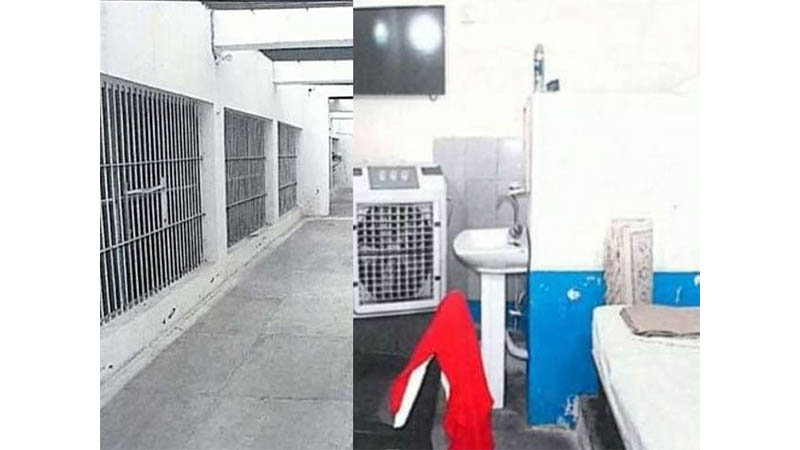The federal government on Thursday firmly denied allegations that it was obstructing access to Pakistan Tehreek-e-Insaf (PTI) founder Imran Khan by his lawyers and family. In a detailed response submitted to the Supreme Court, the government presented evidence, including photographs of Khan meeting with his legal team in prison, to counter these claims.
The government’s submission also included a list of individuals who have met with Khan, challenging the assertions that he was being held in solitary confinement. These measures were aimed at refuting the former prime minister’s allegations that he was being denied access to his legal counsel.
In their response, government officials suggested that, if necessary, a commission could be appointed to verify the claims regarding Khan’s access. They emphasised that Khan had been provided with all necessary facilities in jail, such as books, an air cooler, and a television.
The Standard Operating Procedures (SOPs) for facilitating meetings with Khan were formalised in a document dated March 28. These SOPs outline the protocols for visits by his legal team and family members. According to these guidelines, PTI leaders Barrister Gohar Ali Khan, Sher Afzal Marwat, and Barrister Umair Ahmad Khan Niazi were designated as focal persons responsible for coordinating visits at Adiala Jail in Rawalpindi.
Under the established guidelines, Khan is permitted to meet his family and lawyers in two separate sessions on Tuesdays, with an additional session on Thursdays reserved for his “lawyers/friends.” Visitors must coordinate with the jail authorities through the designated focal persons, who are tasked with providing a visitor list —consisting of two individuals per focal person — one day prior to the scheduled meeting. This arrangement adheres to a six-person limit for each visit.
It is pertinent to note that on March 12, the Punjab government had imposed a two-week ban on visitors at Adiala Jail, citing security concerns based on intelligence reports. This move was heavily criticised by PTI leaders, who alleged that the ban was a deliberate attempt to obstruct their meetings with Khan.
The ban sparked significant controversy, with PTI officials arguing that it was an effort to isolate Khan further. However, the government maintained that the ban was purely a security measure, necessary to address credible threats identified by intelligence agencies.
The federal government’s response aims to mitigate the accusations of mistreatment and denial of legal rights to Khan. By providing photographic evidence and detailed visitor logs, officials seek to demonstrate transparency and compliance with legal and human rights standards.
PTI leaders, however, remain skeptical. They continue to argue that the restrictions placed on Khan’s interactions with his legal team and family are excessive and politically motivated. The ongoing tension between the PTI and the federal government reflects the broader political strife in Pakistan, with each side accusing the other of manipulation and misconduct.
The Supreme Court’s review of the government’s response and the evidence provided will be crucial in determining the veracity of the claims made by both sides. As the legal battle continues, the focus remains on ensuring that Khan’s rights are upheld while balancing the need for security and order within the detention facility.
